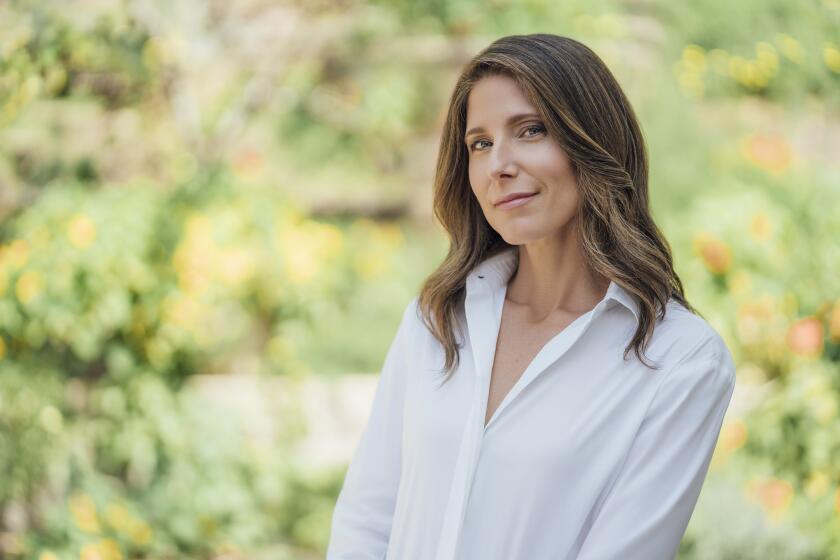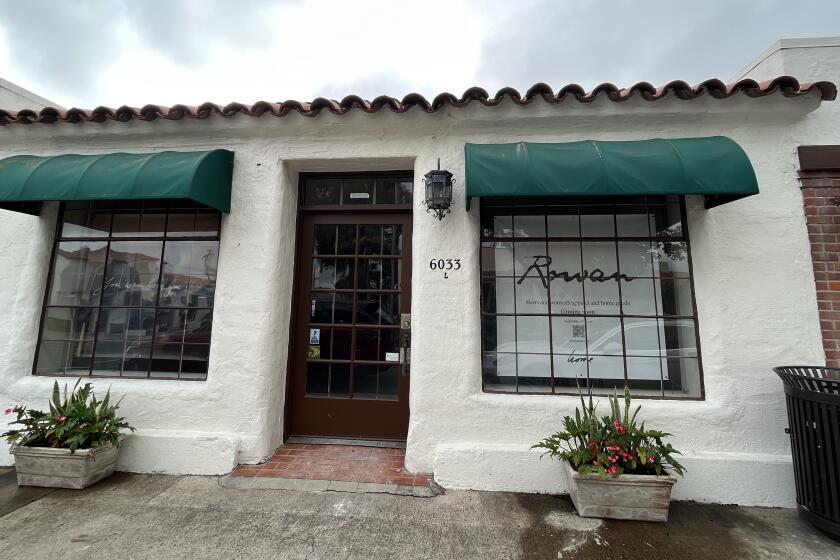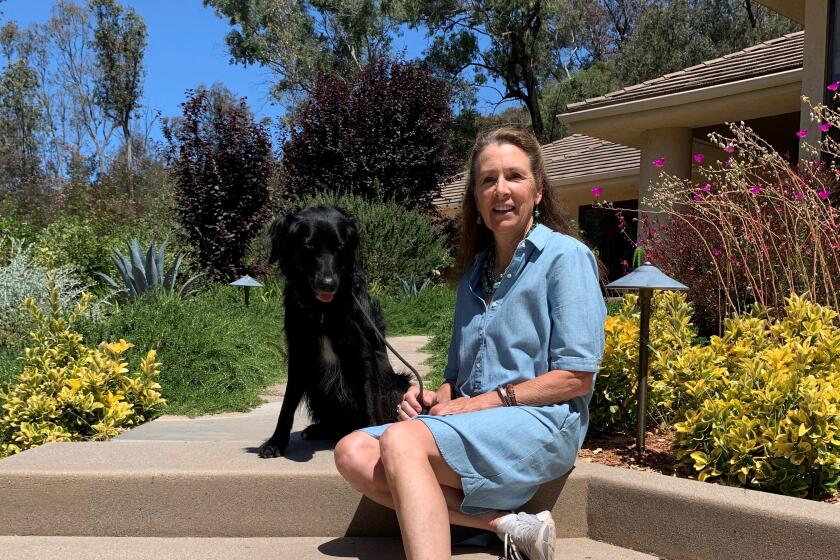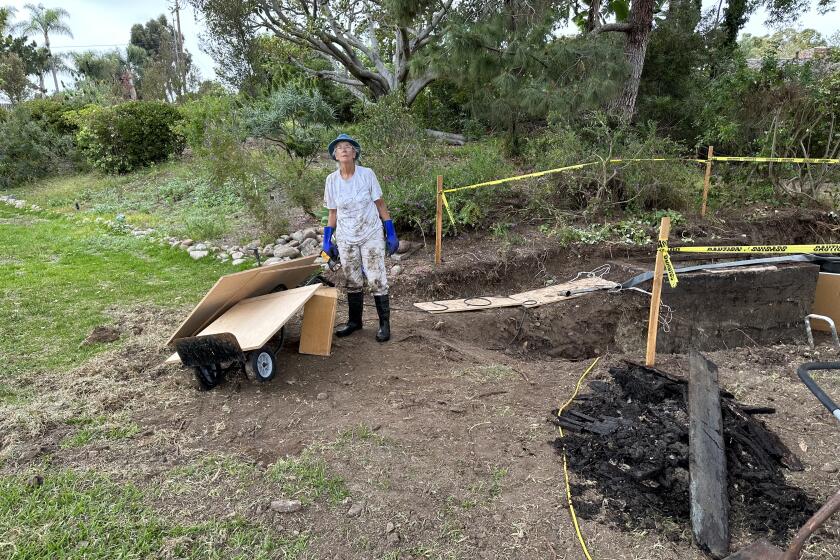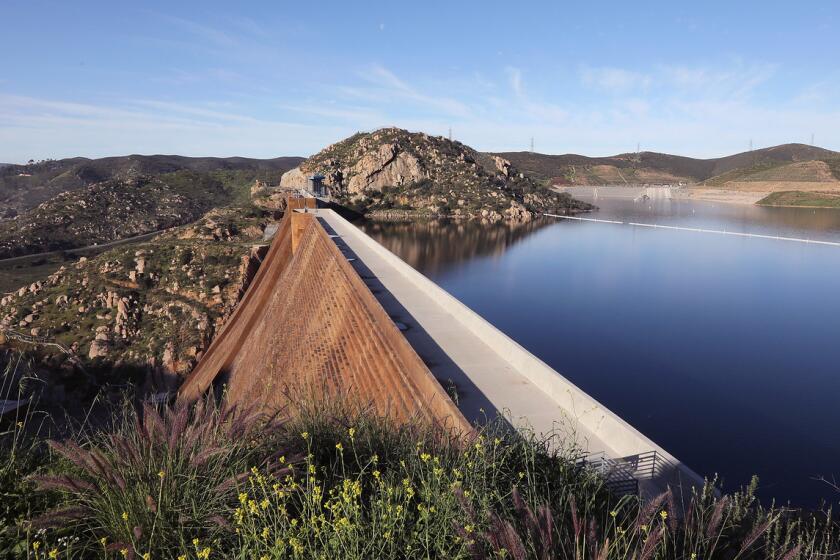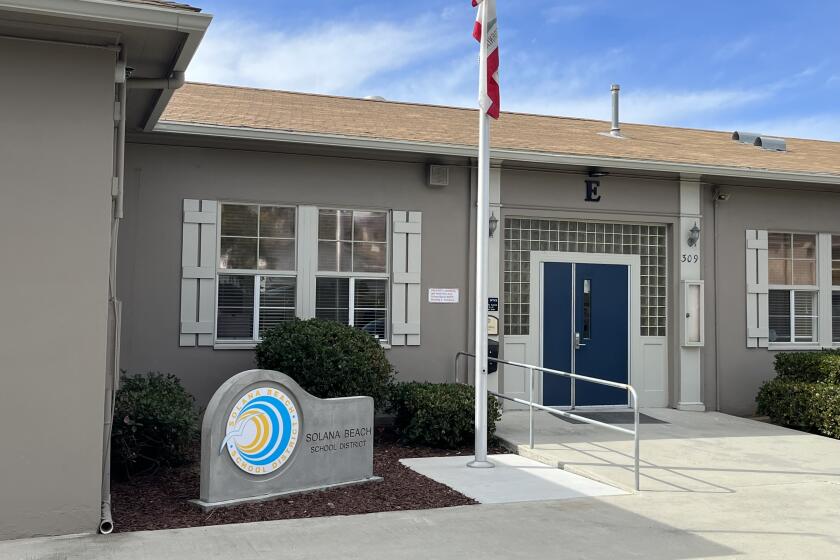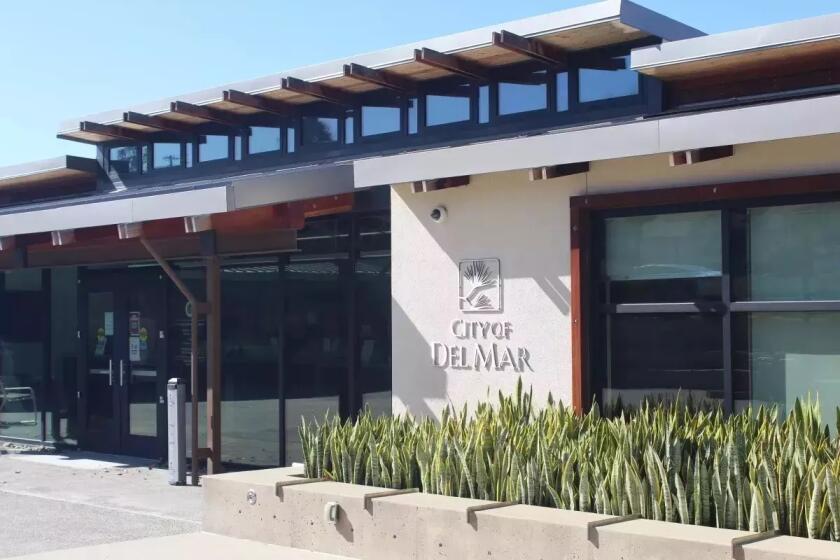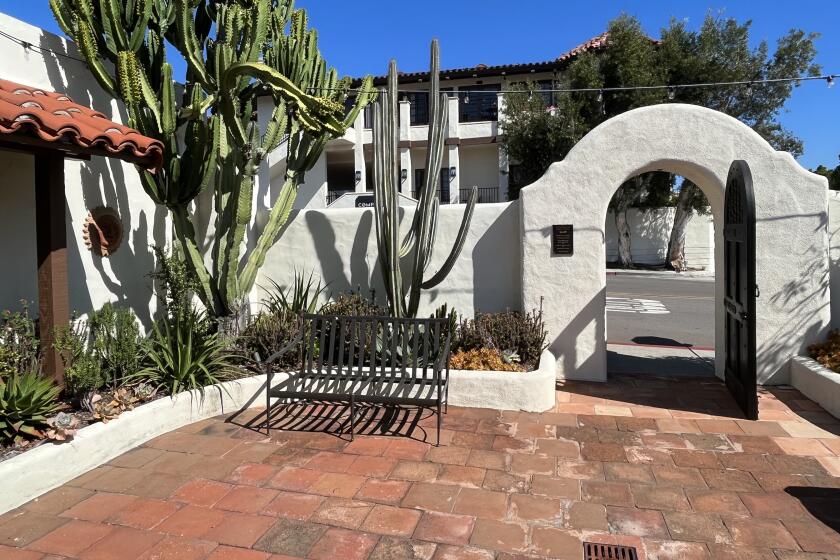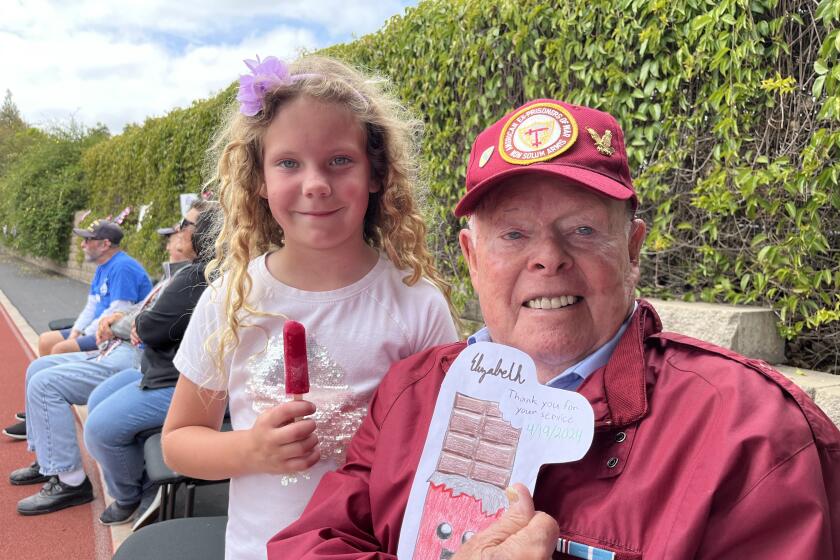RSF resident led effort for new Robert Frost Society home in San Diego
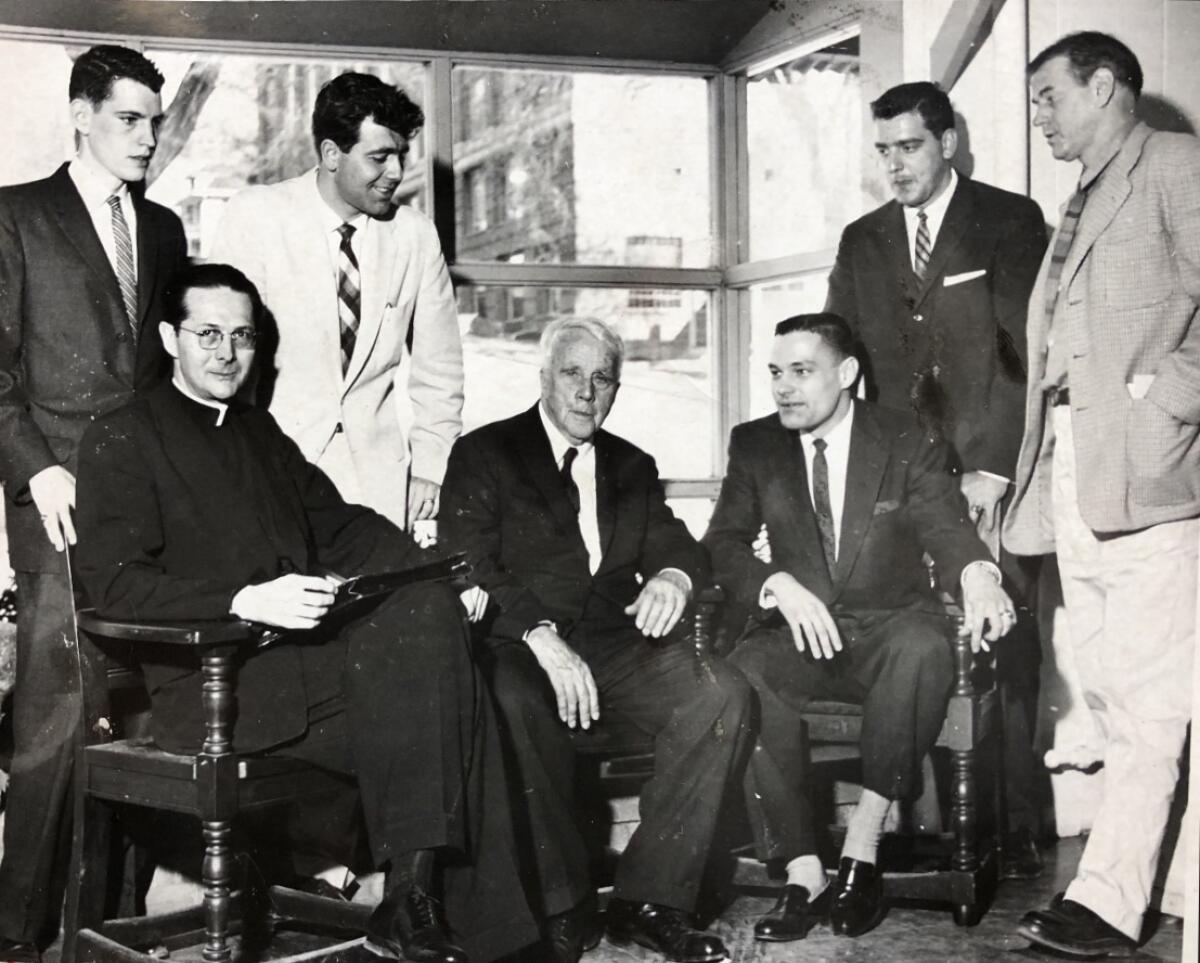
On July 28, the San Diego Public Library announced a collaboration with the international Robert Frost Society, creating a permanent new home for the Society honoring the celebrated American poet at the downtown Central Library. The Central Library @ Joan Λ Irwin Jacobs Common will become a permanent center for research and study of Frost’s work and collections of his rare books and letters—it is the first home base for the Society since its founding in 1978.
“The San Diego Public Library is committed to building partnerships that broaden access to resources that create opportunity, discovery and inspiration,” said Library Director Misty Jones. “Housing the Robert Frost archive of correspondence, rare books and photographs at a public library allows more people to learn and gain inspiration from the collection. And, it lets us invite more San Diegans to participate in events discussing the important ideas presented in these works.”
The idea was put into motion just last year by Jim Hurley, a Rancho Santa Fe writer and businessman, who gained the support of San Diego businessmen and civic leaders Art Flaming, Malin Burnham and Mel Katz to see it through.
“It took the further ideas and enthusiasm of Malin and Mel to make it big and realizable, and the leadership of Bob Hass at the Society and our partners at the library and library foundation to make it true,” Hurley said. “Together, we have adopted the Society and, like the moon in a Frost poem, ‘put it shining’ in San Diego.”
Frost, born in San Francisco in 1874, is often considered as the greatest of all American poets. He was awarded four Pulitzer Prizes for his immense body of work, including works such as, “Stopping by Woods on a Snowy Evening,” “The Road Not Taken,” “Mending Wall,” and “The Death of the Hired Man.” He died in Boston, Mass. in 1963 at age 88.
The Frost Society was founded in 1978 by Frost scholar and professor Earl Wilcox and is comprised of scholars, poets, critics and students devoted to the poet’s works. The Society publishes a peer-reviewed annual journal, The Robert Frost Review.
“This is an historic moment in American literature, a marvel of collaboration and a shining example of San Diego’s community spirit and support for arts and letters,” said Robert B. Hass, the new executive director of the Society. “I know of no other place where such a project could have been accomplished as beautifully through the blending of public and private energies. My expectation is that the magnificent Central Library will be a magnet for the study of Robert Frost’s imperishable works at all levels of learning and a renewing spirit for the appreciation and love of poetry itself.”
Hurley describes the process of finding a San Diego home for the Society like the form of one of Frost’s poems: “the idea began in delight, found its way, and, thanks to a host of remarkable people, filled out into something having weight, size and wisdom.”
It all began in April 2019, when after 60 years, Hurley finally started working on his memoir about meeting Frost in early 1959 when he was a writing student at the University of Iowa Writers’ Workshop. He wrote and rewrote his essay capturing the moment, sitting elbow to elbow with Frost, a young student and avid Frost reader who had gained self-confidence through the art of writing. To Hurley, Frost was “steel and velvet—kind, but insisted that you know what you say when you’re saying it.” His writing mused on how the meeting had shaped the course of his life and thought: “I’ll shoot for the moon” and decided to submit his work to the Robert Frost Review.
The Review accepted his piece and Hurley began thinking about how he could further support the Society dedicated to the poet he so admired. Jonathan Barron, the longtime executive director of the Robert Frost Society, told him that although it was well-known in academic circles, the Society was lacking in financial and organizational stability and had no home base.
“As a non-academic businessperson with an enduring love of Frost, I found those circumstances odd and intolerable,” Hurley said.
Hurley began exploring the idea of finding a lasting home for the Society at one of the universities in San Diego. He turned to his friend and fellow Rancho Santa Fe resident Flaming, who was able to connect him with Burnham, the longtime San Diego business and philanthropy icon who played foundational roles in the development of institutions such as the Sanford-Burnham Medical Research Institute, Rady School of Management (UC San Diego), the USS Midway Museum, UCSD Foundation and the Sanford Burnham-Moores Center for Real Estate.
Hurley met Burnham in October 2019 to discuss the Frost Society’s potential landing place at one of the universities—but Burnham had the idea to place it at the new San Diego Central Library. He put Hurley in touch with Mel Katz, a local businessman and chairman of the San Diego Public Library Foundation which had generated the funding for The Central Library.
The co-endorsement of Burnham and Katz set off a series of meetings and email exchanges over the next several months with the San Diego Public Library, the San Diego Public Library Foundation and the Society. A sponsorship agreement was signed and in February 2020 the Society had its new home at the eight-story downtown public library in the eighth-largest city in the country. The Society was 75% of the way to its estimated initial funding goal, with support from Hurley, Flaming, Katz and Burnham.
Hurley, who will be 83 in October, has had a long career in business, worked in government, worked on numerous projects and committees, and made documentary films and yet no project over all the years had ever come together as successfully during the span of one year as this effort did.
“It’s just a marvelous example of civic and public collaboration,” Hurley said. “I’ve done a lot of wonderful things in my life but this is something that will live after us. I’m privileged to have been a part of it.”
Hurley has also partnered with San Diego State University graphic arts lecturer Gary Benzel in an effort for advanced SDSU students to create a new branding program for the Society-Library affiliation. The resulting image and materials will incorporate Frost’s likeness with an architectural feature of the Central Library.
What excites Hurley most is what is to come—the new home can nurture the growth of Frost’s legacy, providing a space to host events and conferences, acquire and preserve rare archive and partner with the local writing community.
“The big thing is to bring young people into contact with poetry. We’ve left that behind and I think our language and communication has suffered because of this,” Hurley said. “We want to make poetry so accessible that it can hardly be avoided.”
Hurley thinks the art of poetry should be included when schools think about STEM education, “Poetry is the rich flavor that’s absent from that brew,” he said of how it engages the imagination and puts words and rhythm to discovery and critical thinking.
He admires the way Frost creates a linkage between the natural world and humanity, like in his favorite work “Tree At My Window.” The link between science and poetry is not lost on the new editor of the Robert Frost Review, Virginia Smith, Ph.D. Smith, a chemistry professor at the United States Naval Academy, has earned praise for her book “A Scientific Companion to Robert Frost” which documents Frost’s allusions to science, nature and technology,
This spring, the plan was for the Frost Society to debut at an event on May 21—on the same night, the American Literature Association was holding an event at the Manchester Hyatt, walking distance from the library. Leading Frost scholars and potential donors of rare Frost letters and books were slated to attend. The pandemic delayed their plans. Frost himself lived through the Spanish Flu pandemic of 1918-19, suffering from a severe case of pneumonia that his family thought he would not survive.
“Robert Frost’s granite perseverance… is nothing if not catching,” Hurley wrote in a recent edition of the Society’s newsletter. “When the pandemic subsides and our favorite poet has finally returned home to California, there will certainly be time to celebrate.”
The San Diego Public Library Foundation has established a webpage for Robert Frost Society donations and memberships at supportmylibrary.org/Robert Frost
Get the RSF Review weekly in your inbox
Latest news from Rancho Santa Fe every Thursday for free
You may occasionally receive promotional content from the Rancho Santa Fe Review.
